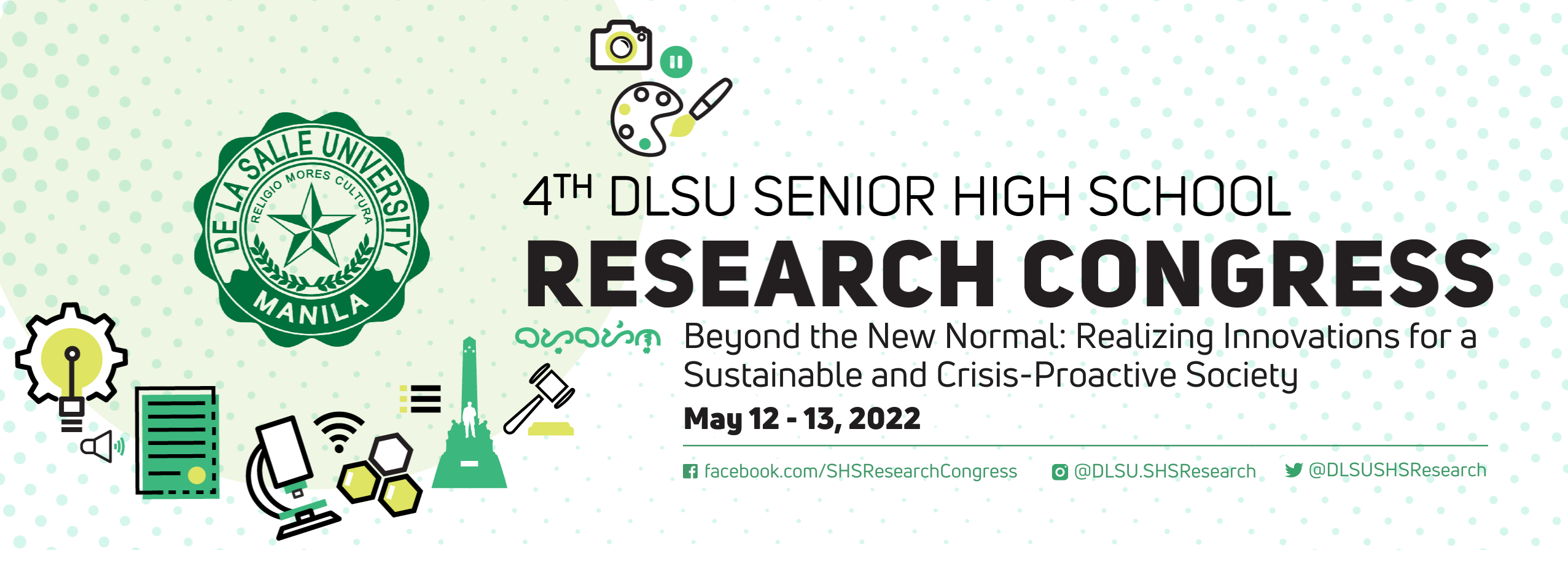Document Types
Paper Presentation
Research Theme (for Paper Presentation and Poster Presentation submissions only)
Sustainability, Environment, and Energy (SEE)
Research Advisor (Last Name, First Name, Middle Initial)
Zeba F. Alam
Start Date
12-5-2022 1:00 PM
End Date
12-5-2022 3:00 PM
Abstract/Executive Summary
The effects of the COVID-19 pandemic on the production and management of Biomedical Waste (BMW) presents a challenging problem due to its potential risks to the environment and human health. Given rising infections and extended health protocols, personal protective equipment (PPE) production continues, leading to increased BMW. Hence, the study aims to analyze the environmental impacts of pandemic-related BMW in the Philippines and their potential role in transmitting the COVID-19 virus via a mixed-methods analysis of data from surveys of different sectors (consumers of medical waste, delivery men, and medical workers) and secondary sources. From the results, the most common types of PPE used in the country are disposable face masks and face shields, with all respondents reporting an increase in general BMW consumption. Alarmingly, estimates show that over 85 million disposable face masks and 50 million face shields are improperly managed, increasing global pollution and environment contamination, leading to health risks as increased exposure to BMW and laxer degrees of implementation of proper BMW disposal practices were found to have a significant relationship (p= 000) with COVID infection. Only a minute portion of respondents is familiar with the Health Care Waste Management Manual and its contents. Across the three sectors, the most observed management practices include segregation of used PPEs from residential waste, disinfection before disposal, and placing used PPEs in sealed containers before disposal. Generally, insufficient capacity and lack of awareness of proper practices were identified as the most significant perceived problems in BMW management in the country.
Keywords
biomedical waste; BMW environmental implications; BMW transmission implications; BMW management practices; COVID-19 pandemic
An Evaluation of the Environmental and Transmission Implications of the Biomedical Waste Production and Management amidst the COVID-19 pandemic in the Philippines: A Case Study
The effects of the COVID-19 pandemic on the production and management of Biomedical Waste (BMW) presents a challenging problem due to its potential risks to the environment and human health. Given rising infections and extended health protocols, personal protective equipment (PPE) production continues, leading to increased BMW. Hence, the study aims to analyze the environmental impacts of pandemic-related BMW in the Philippines and their potential role in transmitting the COVID-19 virus via a mixed-methods analysis of data from surveys of different sectors (consumers of medical waste, delivery men, and medical workers) and secondary sources. From the results, the most common types of PPE used in the country are disposable face masks and face shields, with all respondents reporting an increase in general BMW consumption. Alarmingly, estimates show that over 85 million disposable face masks and 50 million face shields are improperly managed, increasing global pollution and environment contamination, leading to health risks as increased exposure to BMW and laxer degrees of implementation of proper BMW disposal practices were found to have a significant relationship (p= 000) with COVID infection. Only a minute portion of respondents is familiar with the Health Care Waste Management Manual and its contents. Across the three sectors, the most observed management practices include segregation of used PPEs from residential waste, disinfection before disposal, and placing used PPEs in sealed containers before disposal. Generally, insufficient capacity and lack of awareness of proper practices were identified as the most significant perceived problems in BMW management in the country.


